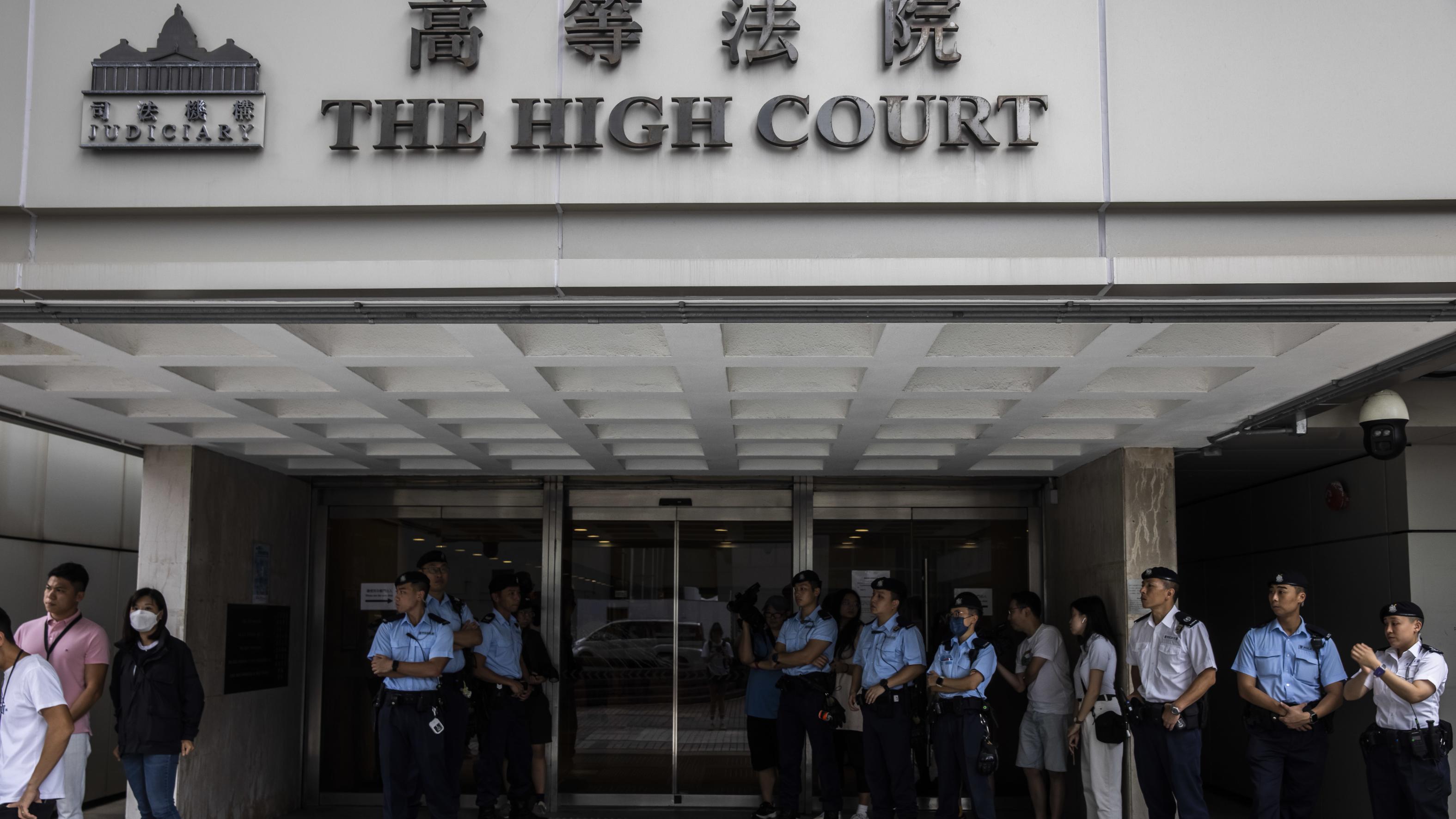 Police stand guard outside the High Court in Hong Kong on July 21, 2023, as the government seeks an injunction to have the protest song ‘Glory to Hong Kong’ banned. (PHOTO / AFP)
Police stand guard outside the High Court in Hong Kong on July 21, 2023, as the government seeks an injunction to have the protest song ‘Glory to Hong Kong’ banned. (PHOTO / AFP)
The hearing of the Hong Kong government’s application for a court injunction against separatism-linked song Glory to Hong Kong has been adjourned until July 28 and the court will announced its verdict then, the High Court said on Friday.
The Department of Justice applied for an injunction on June 5 to prohibit four illegal acts related to the song, which was widely circulated during the 2019 social unrest.
Yu also said that some people may think spreading the song is of little harm, but the reality is the song’s dissemination can indeed contribute to the realization of intentions endangering national security
The unlawful acts involve disseminating, performing or reproducing in any way on any platform with intent to incite others to commit seccession or with a seditious intent, or intent to insult the national anthem. The application also covers any adaptation of the song, the melody or lyrics that are substantially the same as the song. It also aims to prohibit acts concerning those knowingly assisting, inciting or authorizing others to commit such acts.
READ MORE: National anthem: HK Olympic panel specifies protocols
The department also attached 32 YouTube video links related to the song in the application, requesting the court to order a prohibition on the release of the videos, as well as any adaptation of the tunes or lyrics of the song.
In Friday’s hearing, Benjamin Yu Yuk-hoi, a senior counsel representing the Department of Justice, said that even after the implementation of the National Security Law, the song is still widely spread, and became popular again because of some incidents, such as the series of blunders of mistakenly using the song as national anthem in overseas sports competitions, and a man played the song with harmonica outside the British Consulate General in Hong Kong to mourn the passing of late Queen Elizabeth II in September last year.
Yu stressed that the dissemination of the song can cause a profound impact, and can achieve the intention of inciting insurrection, splitting the country and other harmful intentions endangering national security. He also mentioned that even without lyrics, the melody itself can achieve the same effect and incite people's radical sentiments.
He noted that with the advancement of technology, many residents refrain from using their real names when posting messages online, making it difficult for the police to track down the origin of unlawful information.
Yu continued that the court has previously issued injunctions to protect orderly operation of the airport and MTR system in 2019, which had proved to be quite effective. He believes that most Hong Kong residents comply with court orders, and with extensive media coverage of this trial, the general public will have a high awareness of the injunction order.
Yu also said that some people may think spreading the song is of little harm, but the reality is the song’s dissemination can indeed contribute to the realization of intentions endangering national security.
READ MORE: Another national anthem mix-up at sports tournament annoys Hong Kong residents
The application for an injunction aims to prevent ignorant residents from engaging in such behavior.
On Thursday, 27-year-old photographer Cheng Wing-chun, who is the first person to stand trial under Hong Kong’s national anthem law, was sentenced to a prison for three months at Eastern District Court.
In 2021, Cheng used the song to replace the national anthem in a video clip showing Hong Kong Olympic gold medalist Cheung Ka-long accepting the award in Tokyo. He also posted the video online. Cheng was arrested later and found guilty of insulting national anthem.


